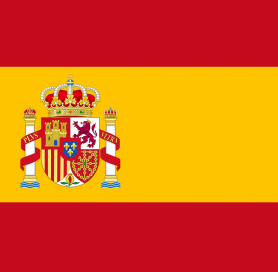How The TSP Funds Could Be Affected By Tariffs and New Governments

Two things are affecting the worldwide financial markets – changes in the European government and international tariffs. The TSP funds most affected by tariffs will be the stock-based TSP funds and this impact could last through the end of the year.
For months, U.S. President Donald Trump said he would impose tariffs on imported aluminum and steel but gave a temporary pass to Canada, European Union, and Mexico while negotiations were ongoing. However, the pass recently ended when the tariffs were imposed on the U.S. closest allies. When that happened, the countries announced it would impose retaliatory tariffs on many of the U.S. exports. The amount of money involved isn’t having too much of an effect on the national economy, but some sectors are feeling the pinch more than others. Some analysts suspect this could lead to even more U.S. tariffs, which could lead to even more retaliatory tariffs. This could lead to a drop in worldwide trade, isolate the U.S. from its allies and impact any involved economies.
Of course, it remains to be seen if any other tariffs will be imposed and how impactful they will be on the U.S. trade deficit the president’s administration is trying to improve. The risk could hurt jobs, economic production, and international trade. The positive could be that the Trump administration can come up with new, more favorable trade agreements and reduce the U.S. trade deficit. This typically benefits the currency exchange rate and domestic economic production that could steady a country’s share prices such as the C Fund holdings.
The New Government Of Italy
A little while ago, global markets were rattled by Italy’s new government. However, some of these concerns have smoothed out, but still has left uncertainty in the I fund that stands to be watched a little closer. Italy held elections in March that led resulted in ambiguity. Although there were three key parties, none of them won by a clear margin, which means a hung Parliament. The League and Five Star Movement, which were the two successful parties, considered building a coalition government.
This potential coalition was in jeopardy after the country’s president refused to agree to the proposed finance minister offered by the coalition because of the stance it has against the shared Euro currency. When this happened, there was a market sell-off in worldwide equities because of concerns Italy would need to hold more elections to address the uncertainty. The president, however, changed his position, after some re-arranging of the government picks and another finance minister. This alleviates some investors’ short-term concerns, but still, long-term concerns are affecting the market.

The New Government Of Spain

Another EU problem is Spain, where the prime minister was forced from office by the parliament in a no-confidence vote because of the corruption scandal going on in the political party. Although parliament has appointed his opponent the prime minister, his power is rather shaky because he controls only one-fourth of the country’s parliament.
I Fund Concerns
Most people may recall the European sovereign debt crisis that led to the global crisis in the market from 2010 to 2012. Due to the unaddressed primary issues plaguing the market, investors are worried Spain and Italy may spark those concerns once more.
Another possible issue is that many European countries have one currency – Euro – with agreements in place to keep reasonable levels of debt despite some nations already exceeding the agreed-upon standards. Many countries, the U.S. and Japan, have control over their currency. If the debt is high, they can inflate themselves out of the issue rather than default. Some countries don’t have a say in their national budget. A shared currency means individual countries entangled with other countries. One country’s debt problem could affect the entire system.
As it currently stands, Italy has the highest debt-to-GDP ratio; the Eurozone’s third-largest economy. The United Kingdom never had a part in the shared Euro currency and is currently leaving the EU. However, France, Germany, Italy, Netherlands, Spain and other Eurozone nations still have an array of obstacles that are the result of countries who share their currency. Italy is the biggest issue.








